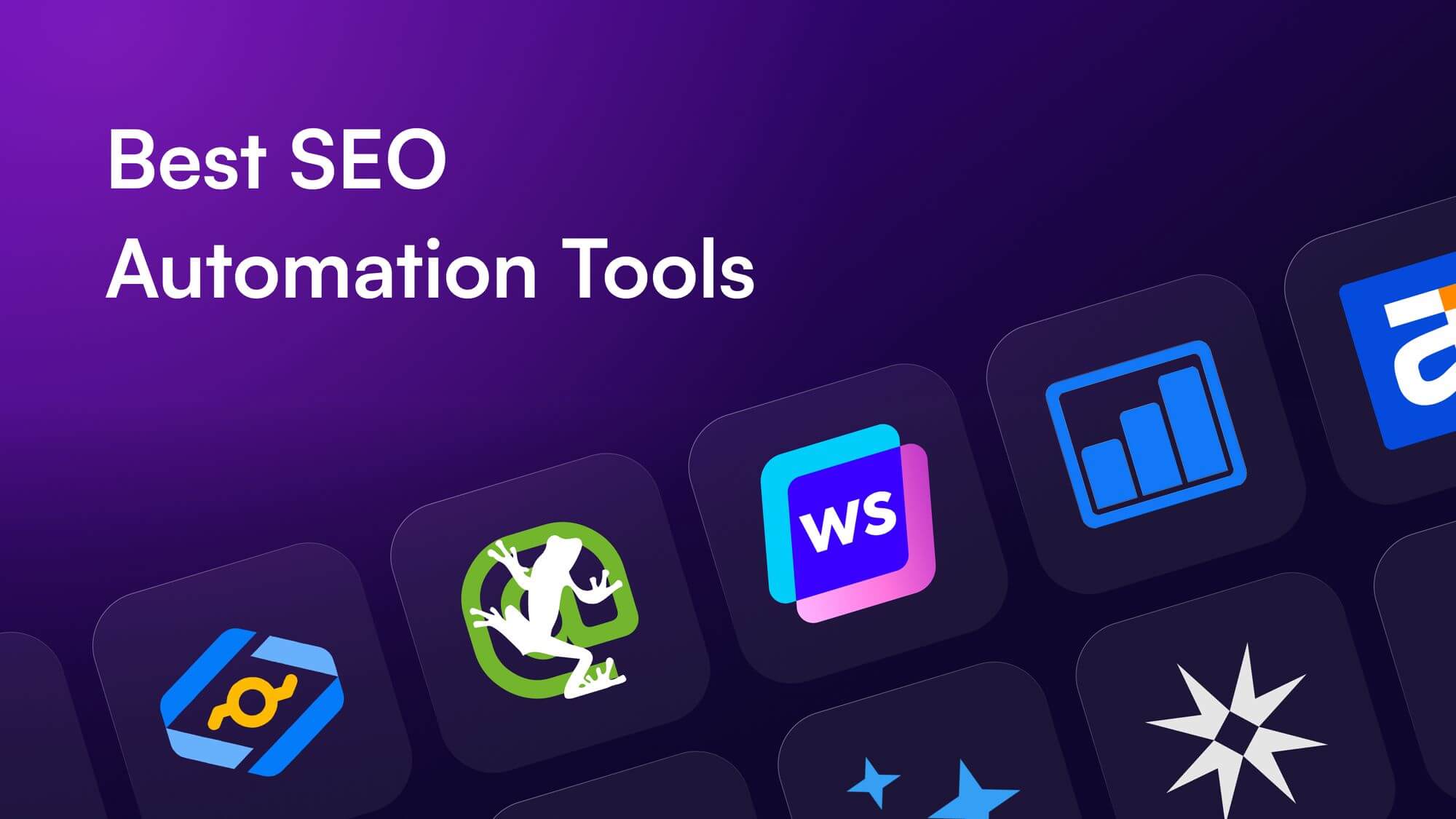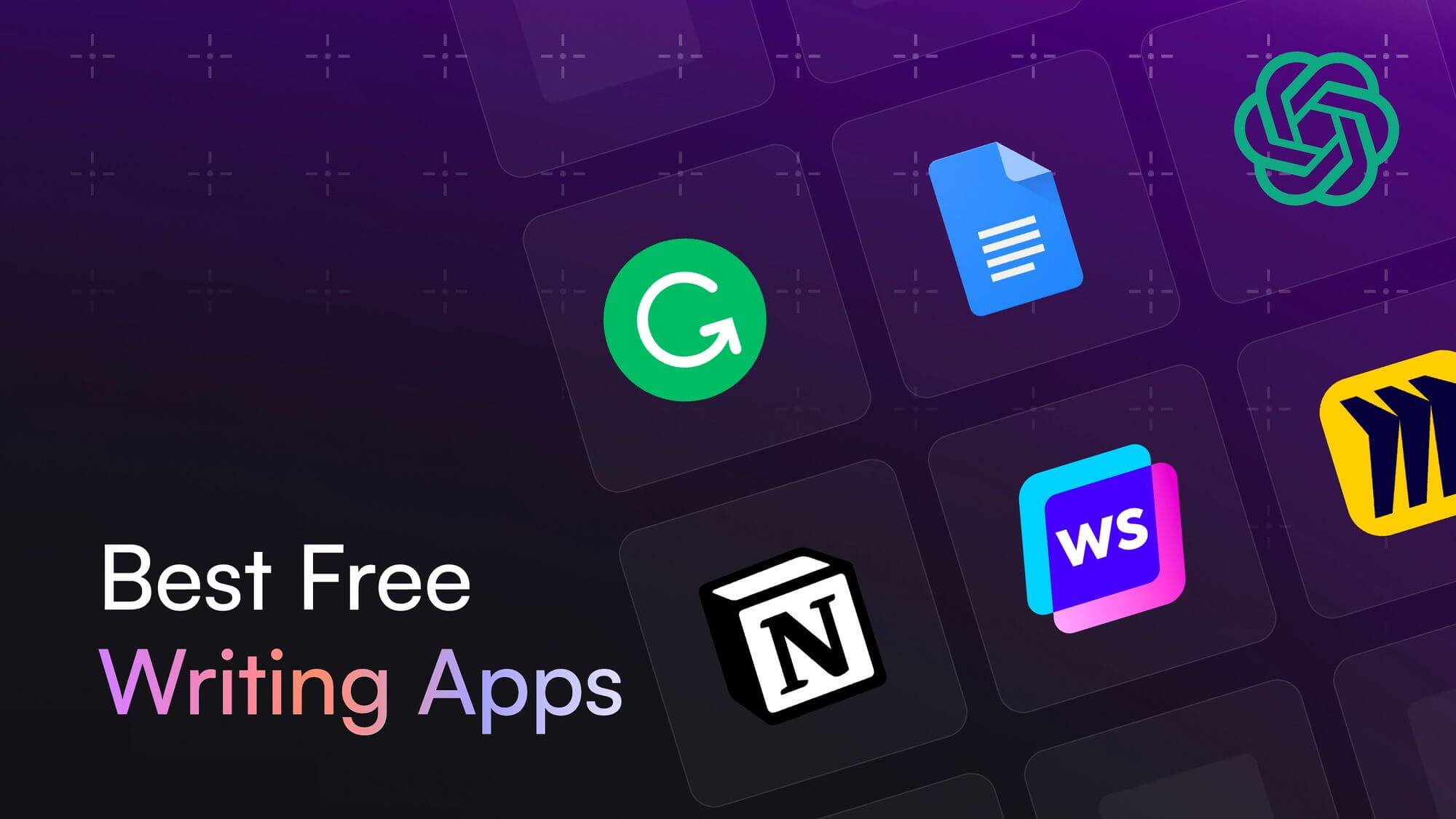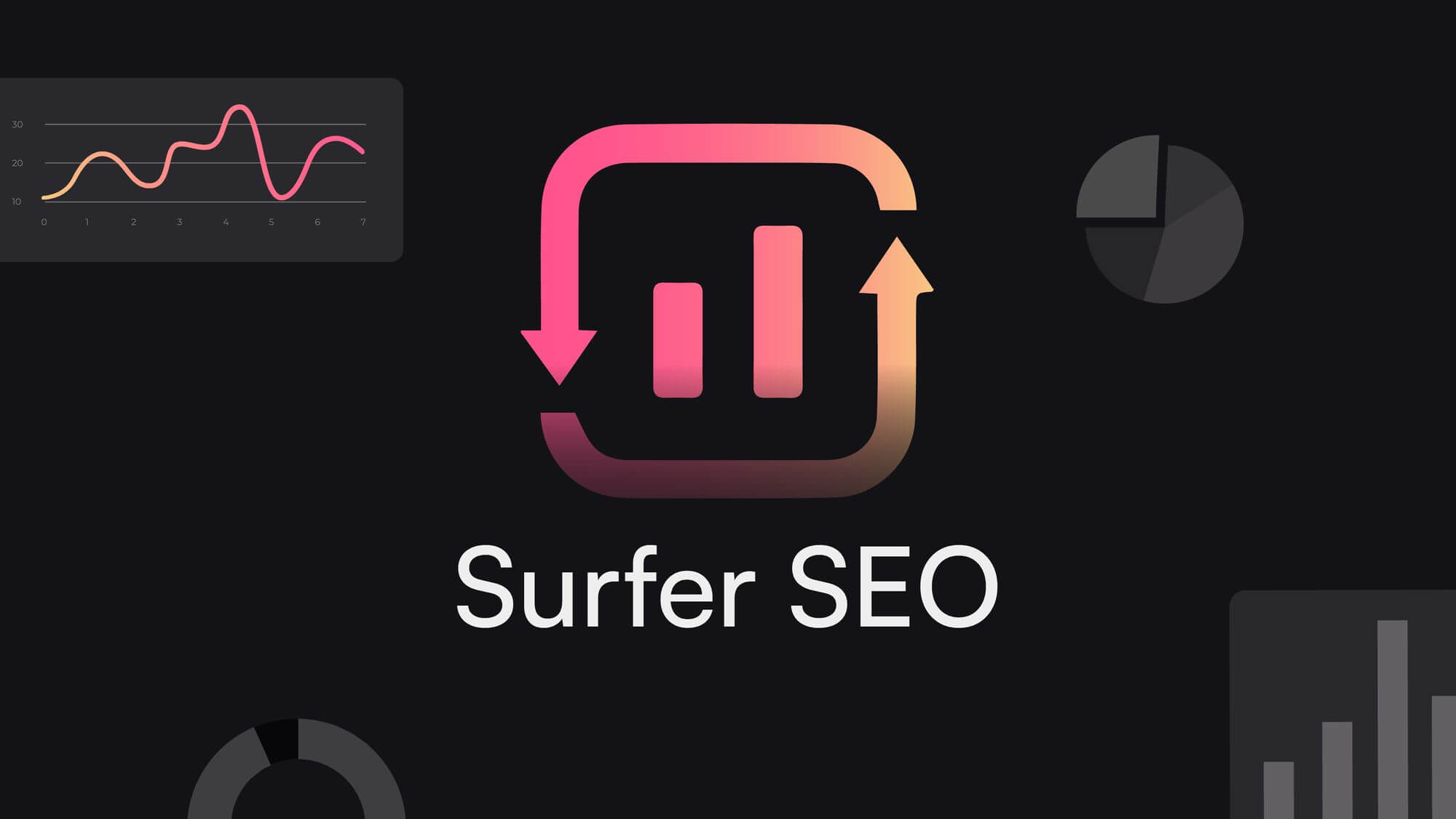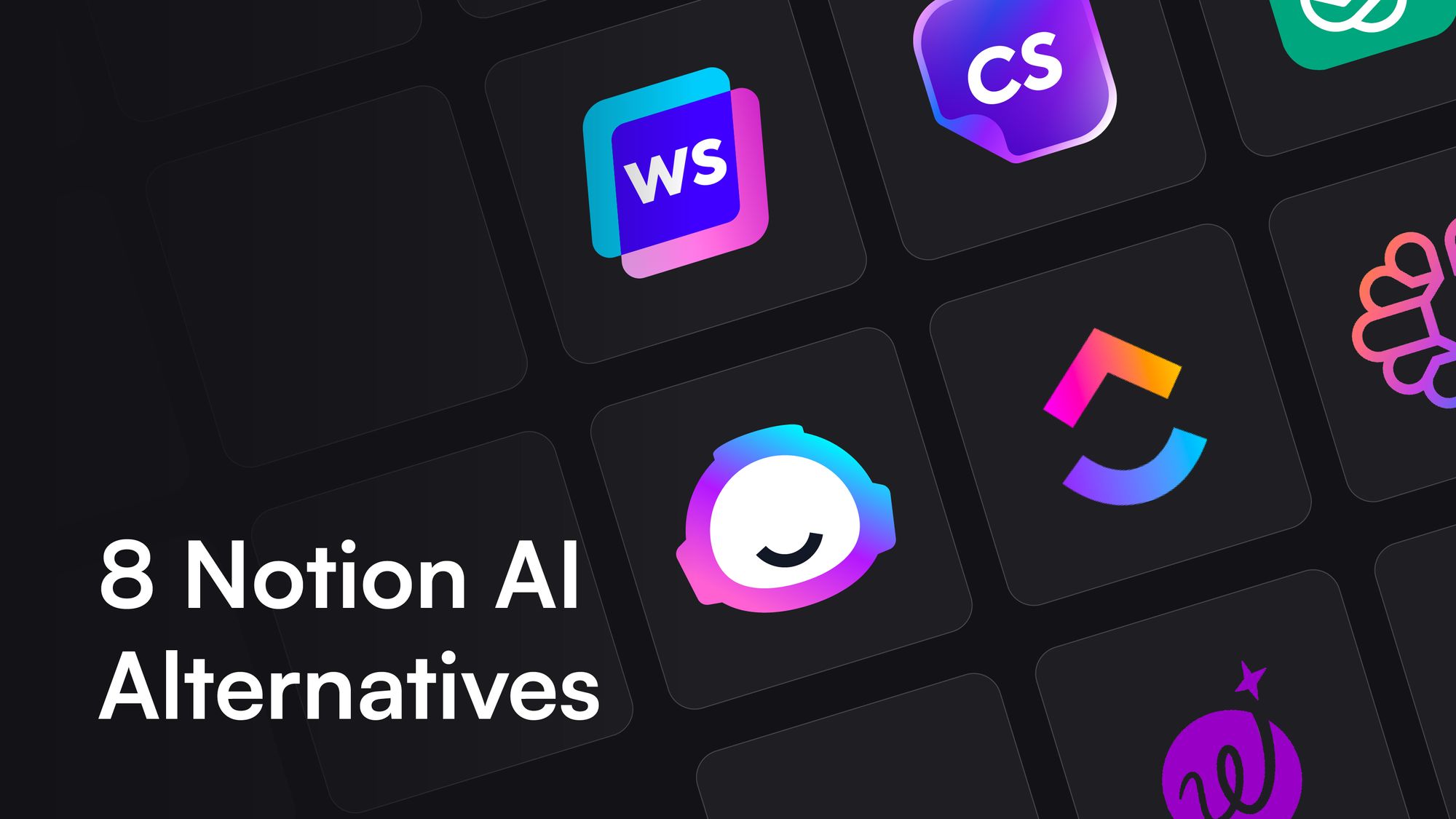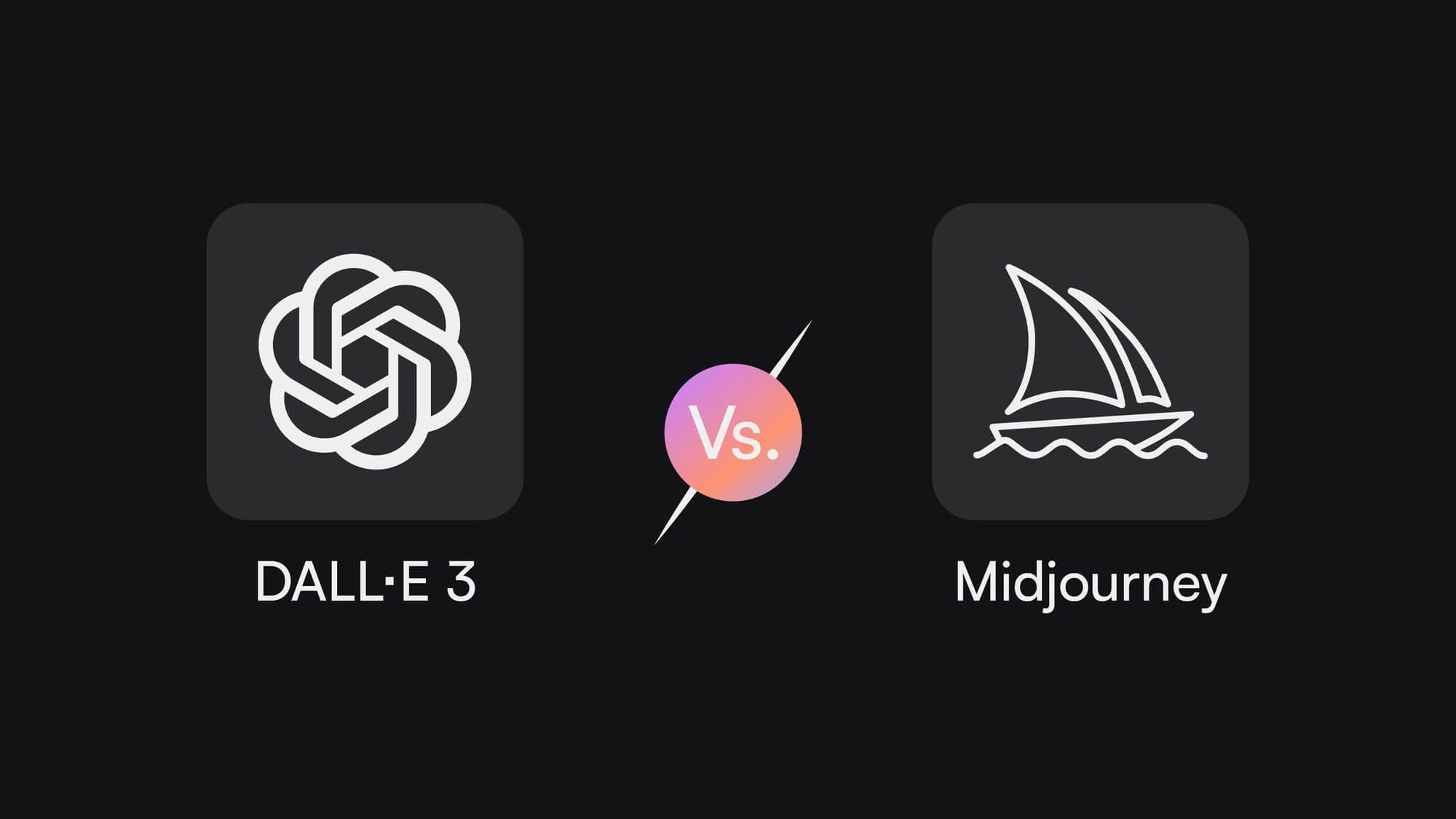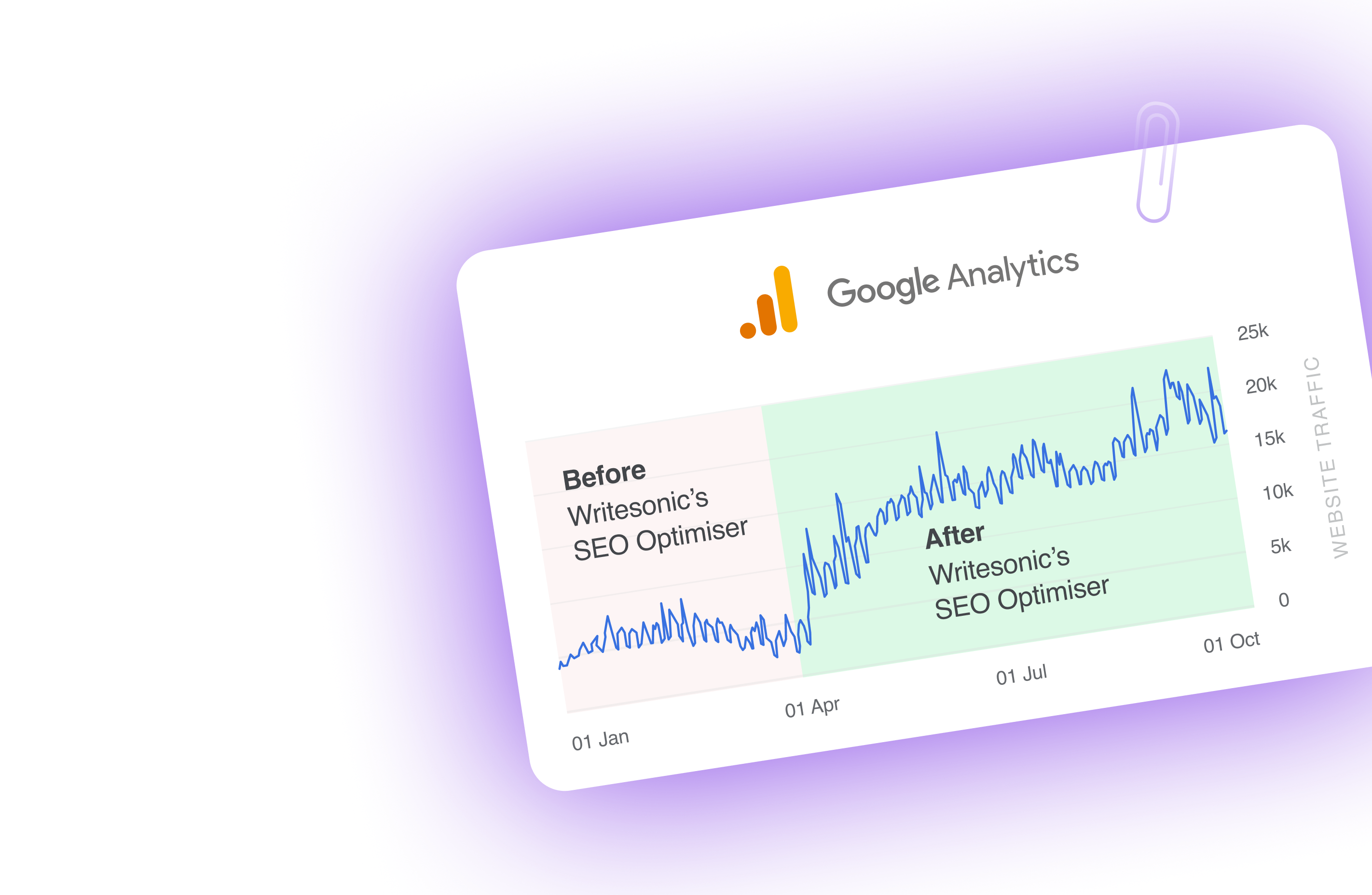Having a hard time ranking your content on the first page of SERPs? You’re not alone—only 5.7% of pages rank in the top 10 search results for at least 1 keyword within a year of publishing.
However, creating SEO content that ranks well on SERP does not have to be intimidating. Having said that, you need the right set of SEO content writing tools to streamline workflow and improve the quality of your writing. Only then can it rank at the top of SERPs.
From keyword research tools to advanced content optimization platforms, there are different solutions designed to help you at every stage of the content creation process.
In this blog post, we’ll explore the best SEO content writing software available. You can use these tools for thorough keyword research, to draft compelling and optimized content, as well as to track content performance to ensure continuous improvement.
Whether you’re a seasoned SEO content writer or just starting out, these tools can help you create high-quality, SEO-optimized content efficiently.
Let’s check them out.
Best SEO Content Writing Software in 2024
1. Writesonic – overall best SEO writing tool
| Best suited for | G2 ratings | Trustpilot ratings | Pricing |
| SEO & marketing content creation | 4.7 | 4.8 | Chatsonic: $12/month, Individual: $16/month, Standard: $79/month Enterprise: Starts at $9999/ year pricing |
Writesonic offers a wide range of AI-powered SEO content marketing applications. And, of course, it tops our list as the overall best content writing tool for SEO. From keyword research to planning content strategy and execution and creating content drafts, Writesonic comes as one unified solution for content writers and marketers.
Key features
1. Chatsonic for content research and planning:
At Writesonic, Chatsonic works as a great starting point for us when creating SEO content. The ChatGPT alternative tool helps with research and brainstorming. It also suggests ideas for covering different angles on the same topic.
Ask Chatsonic for ideas that will make your blogs and articles more engaging and visually appealing. You can ask the chatbot different questions about the blog topic to gather insights and create an initial framework for your SEO blog or articles.
2. Comprehensive keyword research:
Writesonic offers specialized tools for creating the best keyword strategy. The keyword research tool shows the volume, difficulty, and total traffic that the specific keyword generates.
You can also use Topic Clusters to find keyword clusters that build topical authority.
Also, Writesonic has the Answer The People feature. The tool lists the questions people are asking for a specific topic, helping you find long-tail keywords.
3. AI Article Writer 6.0:
One of the standout features of Writesonic is its AI Article Writer 6.0. Internally, we use the tool to create the first draft of our articles. Also, we find the tool useful for creating guest posts and highly informative articles.
It conducts thorough research on the topic and analyzes the already ranking content on SERP to come up with articles that are SEO-optimized, 100% plagiarism-free, and free of AI hallucinations.
Also, you get complete control over the length and the outline of your article. Apart from that, the SEO writing assistant lets you select your choice of primary and secondary keywords and maintains your unique brand voice and style across the blog.
4. SEO checker and optimizer:
We use the Writesonic SEO Checker and Optimizer tool to check and improve our content SEO score. The tool analyzes content against SEO best practices and available keyword data.
Then, it offers suggestions for including different secondary and LSI keywords as well as enterprise terms in the blogs and articles to improve SEO scores and rank in better positions.
Learn more about how to use Writesonic SEO checker and optimizer.
5. AI content gap analyzer:
With the AI content gap analyzer, you can compare your blogs and articles with other content ranking on the SERP for the same keyword.
The tool helps you identify gaps and suggest new perspectives that you can include in your content to make it better than the competitors.
Best tools for SEO content research and planning
2. BuzzSumo
| Best suited for | G2 ratings | Trustpilot ratings | Pricing |
| Content Research and Analysis | 4.5 | 3.7 | Pro: $199/month, Plus: $299/month, Large: $499/month, Enterprise: $999/month |
With its intuitive features, BuzzSumo is a great tool for finding new content ideas and conducting content research. The platform helps us discover trending topics and analyze content performance. You can also use the tool to find popular influencers in your niche.
Key features:
1. Content discovery:
BuzzSumo’s content discovery feature is incredibly powerful. It lets you find the most shared and trending content across social media platforms. By entering a keyword or topic, you can quickly see what content resonates with audiences, which helps generate ideas for your own content.
2. Content research and analysis:
BuzzSumo offers detailed content performance analytics for different marketing channels. As you can see a complete breakdown of metrics such as the number of shares, comments, and likes for your posts on each social media platform it becomes much easier for you to figure out what types of content perform well on which platform and why.
3. Question analyzer
While creating SEO content on trending topics, I also found BuzzSumo’s question analyzer feature pretty useful. The tool crawls hundreds of forums and sites like Quora and Reddit to check what questions people are asking on a certain topic.
Once you identify the questions, it’s pretty easy to address them as a solution through your blogs or articles, making your content much more relevant to your audience. Apart from that, you can also use the feature to identify new long-tail keyword ideas.
Pros:
- Lets you easily discover the most shared and trending content.
- Helps with detailed analytics and performance metrics to understand what works.
- Offers tools to analyze competitors’ content strategies and find new opportunities.
- Helps you identify and connect with key influencers in your industry.
- The platform has an intuitive design that is easy to navigate and use.
Cons:
- Small businesses or freelancers might find the premium features to be expensive.
- The free version offers limited access to a lot of useful features and metrics.
- The platform seems over-reliant on social media metrics and thus does not suit all kinds of content strategies.
3. AnswerThePublic
| Best suited for | G2 ratings | Trustpilot ratings | Pricing |
| Content Ideation and Planning | 4.5 | 4.3 | For $5/month, Pro: $49/month, and Expert: $99/month annually |
AnswerThePublic is one of the most crucial tools for SEO content writing. The platform can help you gain a proper understanding of what your audience is searching for.
You can use the AnswerThePublic tool to uncover questions and phrases people are actively searching for on specific keywords. The tool can be a great help for finding content ideas that resonate with your audience.
Key features:
1. Visual representations of data:
I’ve found the visual representation very appealing. AnswerThePublic represents keyword search data in formats such as mind maps and search clouds. You can just enter the keyword and get a comprehensive visualization of questions, prepositions, comparisons, and related searches that people are using. This allows you to easily correlate different topic queries and cover them in a broader sense in your blogs and articles.
2. Questions and topic discovery:
AnswerThePublic gathers data from different search engines and shows the questions people have about a specific keyword. While creating an SEO content outline for a particular keyword, you can directly use these questions related to the topic as subheadings in your content.
3. Trend monitoring:
The platform is also useful for trend monitoring. You can set up alerts for the entry of new questions and topics related to your keywords. As you stay updated with the current trends, you can quickly talk about them in your blogs and articles while keeping your content fresh and relevant to your audience.
Pros:
- Represents data in a visually appealing and easy-to-understand format.
- Generates content ideas while ensuring relevance and accuracy with real search data.
- Covers questions, prepositions, comparisons, and more for comprehensive insights into what users are asking.
- A simple interface makes it accessible for both beginners and experienced marketers alike.
- Premium users can export data to CSV files, facilitating deeper analysis and easier sharing with teams.
Cons:
- The free version has a limited number of searches per day, which can be restrictive for extensive research needs.
- Primarily focuses on question-based queries, lacking broader SEO analysis features found in more comprehensive tools.
- The premium version can be relatively expensive for small businesses or individual marketers.
4. Exploding Topics
| Best suited for | G2 ratings | Trustpilot ratings | Pricing |
| Trend Identification | None | 3.7 | Entrepreneur: $39/month, Investor: $99/month, Business: $249/month |
Exploding Topics is another tool you can try for research and planning your SEO content writing task. The SEO content writing software lets you identify emerging trends before they actually become mainstream. You can try Exploding Topics to get fresh content ideas and stay ahead of your competitors.
Key features:
1. Trend identification:
The platform uses smart machine learning algorithms, NLP, and techniques for analyzing time series. It tracks emerging trends by studying search data, mentions on social media, and online conversations. Then, it makes a list of topics that are becoming popular.
2. Category filtering:
While searching for trends in a specific industry the tool lets you filter the data from categories such as technology, health, or finance. Thus, you can easily find niche specific trends.
3. Growth score:
Each trend comes with a growth score that indicates how quickly it is gaining popularity. This number helps to prioritize trends for content creation.
4. Weekly reports:
Exploding Topics sends weekly reports that spotlight the newest trends in the categories you choose. You can use these reports to stay informed about what’s new and upcoming, so you never overlook a crucial trend.
Pros
- Helps identify emerging trends before they hit the mainstream.
- Can find niche-specific trends, helping users create targeted content.
- Provides clear indicators in numbers to help you understand the trend’s popularity.
- Not just data but offers context and interpretation to help understand why a trend is growing.
Cons
- Advanced features and detailed trend data require a premium subscription, which might be costly for small businesses or individual marketers.
- Primarily focuses on trend identification rather than providing a full suite of SEO tools.
Best tools for keyword research and strategy
5. Google Keyword Planner
| Best suited for | G2 ratings | Trustpilot ratings | Pricing |
| Free Keyword Research | Not available | Not available | Free with Google Ads account |
Google Ads account users can access Google Keyword Planner for free. If you are an individual SEO content writer or a small business owner on a budget, you will definitely find this tool very useful.
The SEO content writing software provides keyword search volume, competition, and CPC data. You can use these critical keyword metrics to build a keyword strategy that enhances SEO content.
Key features:
1. Keyword research:
With Google Keyword Planner, you can find new keywords relevant to your business and understand the searches they attract and the cost of targeting them. Input a basic keyword to receive a list of related keywords with their search volume and competition level.
2. Useful CPC Data for better conversion:
Even though it’s for Google Ads, the CPC data from Keyword Planner also helps with SEO. Keywords with higher CPC show strong commercial intent. You can use these to create content that attracts more valuable traffic. This lets you focus on keywords that not only bring in visitors but traffic that are more likely to convert.
3. Identifying long-tail keywords
The tool is very useful for finding long-tail keywords. These longer, detailed phrases have less competition and are more precise, perfect for niche topics. By targeting long-tail keywords, you can attract more focused and interested visitors to your website and boost your SEO results.
4. Search trends and seasonal insights
The tool offers views into how searches for certain keywords shift across seasons. You can follow changes from one year to the next and note seasonal patterns. This helps in planning content strategy that matches times when most searches happen. Thus, you can capitalize on seasonal trends and make sure your content fits the right timeline.
Pros
- Google Keyword Planner is available for free.
- The data from Google is very accurate and reliable
- The platform shows detailed info about keyword search volume, competition, and CPC.
- It works well with Google Ads, which makes it easy to move from researching keywords to creating an ad campaign.
Cons
- The tool gives data for Google searches, so it might not show trends from other search engines.
- You must create a Google Ads account to use Google Keyword Planner, and this can be tricky if you do not plan to run ads.
- The search volume data is often provided in broad ranges, which can be less precise for detailed keyword planning.
6. Semrush
| Best suited for | G2 ratings | Trustpilot ratings | Pricing |
| Creating SEO Content Strategy | 4.5 | 4.0 | Pro: $129.95/month, Guru: $249.95/month, Business: $499.95/month |
Semrush has an SEO Writing Assistant that works as a smart writing editor. It helps you optimize your copy for better engagement and SEO.
Apart from the SEO writing assistant, Semrush also works as one of the best SEO automation tools and offers a range of features that can streamline your content creation process.
The SEO Writing Assistant can provide guidance on optimizing content for SEO. But obviously, you shouldn’t follow the suggestions that ruin the natural flow of your writing and make the content sound like AI written.
Hence, be careful while implementing all the changes suggested by the tool, as it could potentially reduce the quality and usefulness of the content for readers.
Key features
1. Real-time SEO optimization
You can get quick tips on related keywords to include in your content and how to optimize your images, tags, and links.
2. Readability improvements
The readability improvement feature helps to assess the content readability and identify words, sentences, and paragraphs that need to be rewritten.
3. Tone of voice consistency
For creating branded content, it’s utterly important to maintain a consistent tone of voice. It gives your content the required authority to rank higher. Semrush lets you determine whether your tone of voice is consistent and relevant to your audience and adjust your choice of words where necessary.
4. AI-powered tools
Use the Rephraser, Compose with AI, and Ask AI features to save time when composing and rewriting text.
Pros
- Offers detailed SEO recommendations to improve content visibility and ranking
- Provides suggestions to make content more accessible and engaging
- Ensures content maintains a consistent brand voice
- Seamlessly integrates with platforms like Google Docs and WordPress
- Detects duplicate content to protect SEO rankings and credibility
- Provides instant corrections and suggestions to enhance editing efficiency
Cons
- Subscription fees may be a barrier for freelancers or small businesses
- New users might need time to fully leverage all features
- Fewer options for tailoring feedback and analysis compared to other tools
7. Keywords Everywhere
| Best suited for | G2 ratings | Trustpilot ratings | Pricing |
| Keyword Research | None | None | Credit-based, $10 for 100,000 credits |
Keywords Everywhere is one of my go-to choices for keyword research. The tool is quite affordable and available as a browser add-on for both Chrome and Firefox, which makes it easy to access.
It shows search volume, CPC, and keyword difficulty metrics directly within the search result. The extension also offers a separate section with questions people are asking and a related keywords section within the same interface, making keyword research a breeze.
Key features:
1. Seamless integration
It fits right into your browser, showing keyword data when you surf Google, YouTube, Amazon, and more. The tool shows you the search volume, cost-per-click (CPC), and competition data right away without having to switch among different tools or pages.
2. People Also Search For
I like the “People Also Search For” and “Related Keywords” features. The tool offers keyword ideas based on what people usually search for, which helps in developing keyword plans and finding hidden long-tail keywords.
3. Historical Data from Google Trends
Keywords Everywhere uses Google Trends to show past search volumes. I can track how the popularity of keywords has shifted, which is very important for noticing seasonal trends and setting up strategies for long-term content.
4. Competitor Analysis
The extension has a Page Analyzer tool that shows the keywords that the competitors are targeting. It can help you spot keyword opportunities, get a better understanding of the competition, and tweak your SEO strategy accordingly.
Pros:
- Gathers data from reliable sources like Google Trends, ensuring the information is up-to-date and accurate.
- The browser extension is easy to install and use, making it accessible even for beginners.
- The credit-based pricing model is affordable, allowing you to pay only for what you use.
- Offers a comprehensive set of features, including search volume data, CPC, competition metrics, and more.
Cons:
- The free version offers limited data, prompting users to upgrade for more comprehensive insights.
- It’s easy to forget the extension is running, which can lead to accidental use of credits. Managing your credits carefully is crucial to avoid unnecessary depletion.
- While it covers the basic features, some advanced users might find it lacks the depth of data provided by more expensive SEO tools.
Writing and optimization
8. Google Docs
| Best suited for | G2 ratings | Trustpilot ratings | Pricing |
| Content Creation and Collaboration | Not available | Not available | Free, Google Workspace: $6/month per user |
Google Docs offers SEO content writers a clean, distraction-free interface for writing. Whether you are a veteran or just starting your career, you are definitely going to find Google Docs one of your go-to applications for drafting your content and collaborating with your team.
With specialized add-ons and collaborative features, Google Docs is more than a simple word processor; it is a versatile application for drafting SEO-optimized content.
Key Features:
1. Real-time collaboration
Google Docs’ impressive feature is its real-time collaboration. This is helpful when a team works together on content strategies. Many people can work on a document at the same time, which makes it simple to brainstorm, draft, and improve content as a group. The feature that lets you make comments and give suggestions helps everyone keep track of changes both in actual text and in understanding.
2. SEO enhancements
Google Docs includes many add-ons designed to boost SEO content creation. For example, the Semrush SEO Writing Assistant connects with Google Docs and gives you immediate advice on how to use keywords, how readable your content is, and your overall SEO score.
3. Formatting and templates
Google Docs provides several templates and formatting options that assist in making well-organized, SEO-friendly material. Employing headings, subheadings, bullet points, and various formatting aids, you can optimize your content for users and search engines.
4. Integration with other Google tools
It works with other Google tools like Drive, Google Analytics, and Google Search Console. This integration lets you access data, work together on cloud-stored documents, and apply insights from Google Analytics to plan your content strategy.
Pros:
- Google Docs is easy to use and serves people of every skill level.
- The platform makes collaboration with team members easy.
- Google Docs works with different SEO add-ons, making it a powerful tool for writing better SEO content.
- Cloud-Based Convenience: Since Google Docs is based online, you can get to your documents from any device that is connected to the internet.
Cons:
- Google Docs is just a word processor and does not have as many complex features as specialized content writing tools for SEO might have.
- Though Google Docs lets you work offline, yet it’s not as smooth as working online.
9. Grammarly
| Best suited for | G2 ratings | Trustpilot ratings | Pricing |
| Grammar and Style Checking | 4.7 | 4.5 | Free, Premium: $12/month annually, Business: $12.50/user/month annually |
Grammarly is one of the most used writing tools. The platform offers several features for creating high-quality, SEO-friendly content. Grammarly uses sophisticated algorithms to analyze and point out various issues in your writing, including grammar, spelling, punctuation, style, and tone.
Key features
1. Advanced grammar and spell check
Grammarly finds and resolves spelling and grammar mistakes in real-time. This keeps your work clean and error-free, which is very important for maintaining trust and making it easy to read.
2. Readability and style improvements
Grammarly offers advice on how to make your content easier to read and better in style. It analyzes how you structure sentences, the words you choose, and how brief you are and offers suggestions to improve all the aspects of your writing. This makes your content straightforward and simple, which gives readers a better experience. A good user experience can help your SEO rankings go up.
3. Tone detection and making changes
Grammarly’s tone detection tool helps to maintain a consistent writing tone that matches your audience and situation. If you need a professional tone for a business document or a casual tone for a blog, it suggests changes for adjusting your style.
Pros
- Grammarly identifies and corrects grammatical errors, spelling mistakes, and punctuation issues, enhancing the overall correctness of your writing.
- It provides valuable suggestions to improve the style and tone of your writing, making it more engaging and professional.
- The tool suggests synonyms and alternative word choices to help diversify your vocabulary and improve the overall quality of your writing.
- Grammarly has a user-friendly interface, and its suggestions are presented in a clear and understandable manner.
Cons
- Users might become overly reliant on Grammarly and may not develop their proofreading skills or critically review their writing.
- Grammarly may occasionally provide suggestions that are not necessary or miss certain errors, so users should carefully review suggestions.
- While pasting content from other word processors, the formatting gets distorted.
While Grammarly’s pricing may be on the higher end compared to other tools, its accurate optimization capabilities and ease of use make it a valuable investment for individuals and businesses looking to create competitive content.
10. Hemingway App Editor
| Best suited for | G2 ratings | Trustpilot ratings | Pricing |
| Improving Readability | 4.4 | Not available | Free online, Desktop: $19.99 one-time fee |
The Hemingway App editor helps with editing long-form content and making it more readable. Writers and marketers can use the SEO content writing tool to create blogs and articles with clear and concise sentences.
It highlights hard-to-read or very hard-to-read sentences in your content so that you can edit and make it easier to understand.
Hemingway App Editor highlights lengthy, complex sentences and common errors, suggesting ways to improve your writing style.
Key features
1. Readability improvement
The Hemingway App highlights complex sentences and common errors in your content pieces. It shows ways to simplify your writing, making your content easy to read and improving user engagement.
As users tend to spend more time on your content, it reduces bounce rates and increases dwell time.
2. Clarity and conciseness
The app detects when you use passive voice, adverbs, and complex phrases and pushes you to write direct and concise sentences. Clear and concise writing is vital for SEO, as search engines understand your content better, and it also enhances users’ experience.
3. Focus mode and editing
The app’s focus mode lets you write without distractions, and its editing mode assists in polishing your content. This two-way method ensures that you can craft high-quality, SEO-friendly content.
Pros
- A powerful tool for streamlining your writing style
- Excellent for editing shorter pieces with the free online version
- Pushes you to be clear and punchy in your writing if you tend to use long, complex sentences
- Great for assessing the readability and complexity of your work
- Intuitive and user-friendly interface
- The free version has most features of the paid version
- Cheaper than other writing tools with a one-time cost for the desktop app
Cons
- It is not great for manuscript writing or longer pieces
- Can sap originality out of writing with non-customizable suggestions and style
- Very few features compared to other writing tools
11. Yoast
| Best suited for | G2 ratings | Trustpilot ratings | Pricing |
| WordPress SEO Optimization | 4.6 | 4.6 | Free, Premium: $99/year per site |
Offering a comprehensive suite of SEO tools to optimize your website for search engines, Yoast SEO is both very popular and handy. Over the years, this WordPress plugin has become a staple in my SEO toolkit.
You can use it to streamline both on-page and technical SEO tasks. Here’s why Yoast SEO stands out and how it can enhance your website’s search engine performance.
Key features
1. On-Page SEO optimization
Yoast SEO is great for finding and resolving on-page SEO issues. You can pick a focus keyword for each page, and then Yoast will provide real-time feedback on how well your content is optimized for that keyword. It offers suggestions for optimizing keyword density, meta titles, and descriptions, headings, etc.
2. Readability analysis:
The plugin comes with a tool to check the readability score of your content. It looks at how long your sentences and paragraphs are and checks whether you are using the right transition words that help the writing flow. I find this feature very useful for making my writing more interesting and easy to understand for more people.
3. XML sitemap creation:
Yoast SEO makes an XML sitemap for your site by itself. This lets search engines find your pages more easily. It’s an important tool for making your website easier to find on search engines without another extra plugin.
4. Schema markup:
Yoast SEO incorporates Schema.org integration, helping search engines understand the structure of your content. It enhances how your content appears in search results, potentially leading to rich snippets and higher click-through rates.
Pros:
- Yoast SEO has a simple and intuitive interface. It is designed to be easy to use, even for beginners.
- The free version of Yoast SEO offers a robust set of features that cover the most basic SEO needs.
- It gives immediate feedback on the SEO and readability of your content, helping you improve while you write.
- Yoast SEO receives regular updates to keep up with the latest SEO best practices and algorithm changes.
Cons:
- The premium version of Yoast SEO is relatively expensive, especially for small businesses or freelancers. The premium package, which includes additional features like multiple focus keywords and advanced SEO insights, costs $99 per year per site.
- There is a risk of keyword stuffing if users rely too heavily on the plugin’s recommendations without considering natural language flow.
SEO analysis and on-page optimization
12. Clearscope
| Best suited for | G2 ratings | Trustpilot ratings | Pricing |
| Content Optimization | 4.9 | Not available | Essentials: $170/month, Business: $1,200/month, Enterprise: Custom pricing |
Clearscope is an AI-powered SEO content optimization platform for creating content that ranks well. This is the best content writing tool for SEO who want to focus more on competitor analysis.
The platform analyzes the top 30 articles for a specific keyword and provides suggestions on readability semantic integration of LSI keywords, themes, and sub-themes to optimize your content.
Key features
1. AI-powered content reports
Create reports for specific keywords and store them in the reports dashboard. You can check out previous reports, open new ones, or send them to colleagues for evaluation.
2. Content Optimization
Clearscope has a content grading scale to measure the quality of writing. By optimizing your writing for a better score, you can make it more relevant, comprehensive, and aligned with the top-ranking pages for your target keywords.
3. Keyword Search Tab
Get a list of relevant keywords with monthly searches, competition, and CPC figures for your target keyword.
4. Competitors Tab:
Analyze readability, word count, and content grade for the top competitors’ articles for a given keyword.
Pros
- Detects keywords that are relevant not only in the present but also in the future, helping you create content that consistently generates revenue.
- Intuitive and user-friendly interface, making it easy for content teams to use effectively without additional training.
- Provides accurate AI-powered suggestions for LSI keywords ranked by importance and frequency.
- Quick and responsive customer support, regardless of your pricing plan.
- Analyzes the top 30 SERP results for a keyword, offering a comprehensive view of the competition.
Cons
- Lacks detailed content briefs and collaboration tools like editing and task assignments.
- Does not provide backlink suggestions for the content you write.
- Limited integrations, supporting only WordPress and Google Docs.
13. SurferSEO
| Best suited for | G2 ratings | Trustpilot ratings | Pricing |
| On-Page SEO Optimization | 4.8 | 4.3 | Essential: $89/month, Scale: $129/month, Scale AI: $219/month, Enterprise: Custom pricing |
Surfer SEO is one of the best data-driven SEO writing tools. The tool helps you find keyword ideas and improve your content ranking. It analyzes and compares your pages against those that currently rank on the SERPs, offering a data-driven analysis of exactly what’s missing from your page, site, content plan, and more.
For all queries, SERPs, and pages that you want to analyze, Surfer SEO studies the top page rankings. It looks at on-page SEO metrics like main and sub-keyword usage, LSI/NLP/TF-IDF keywords, meta tags, media elements, incoming backlinks, word count, outgoing external and internal links, headline structure, and more. With these metrics, Surfer SEO can build a useful model of what search engines want to see on a specific query.
Key features
1. Content editor
Surfer SEO’s best tool for SEO writing is its content editor. The platform can be a great choice for on-page optimization.
The main Content Editor’s interface provides a limited rich text editor and in-depth suggestions on the right. It includes a content score that assesses how Google-friendly your content is compared to the other entries on the SERP.
It also gives recommendations for formatting, like how many words you should write and how many images you should use.
2. Unique keyword recommendations
Below that, you’ll find Surfer’s unique keyword recommendations, which tell you what keywords to use in your article and how many times they should appear. Once you use the right keyword enough times, they will turn yellow and then green to let you know you’ve used them enough in the document.
3. SERP analyzer
Besides the Content Editor, Surfer SEO also offers a SERP Analyzer that provides a graph of word count in relation to average position over time and insights on the popular words to use in your articles.
The tool offers a breakdown of each page and its content score, as well as a new feature that shows you common backlinks for the SERP you’re looking at.
4. Content audit
The Content Audit feature analyzes your URL and the SERP of its main keyword and gives you a lot of suggestions for improvement based on that. The Content Planner gives you suggestions on content clusters based on your main topic.
Pros
- Uses over 500 ranking metrics for content optimization
- Gives relevant keyword suggestions to add to your content
- The SERP analyzer tool helps you compare your content with competitors
- Quick Google Docs & WordPress integration
- Auditing and improving existing content is very simple
Cons
- Too much data generated by the SERP analyzer can be confusing
- Not very beginner-friendly
- The Base Plan doesn’t support NLP queries
Plagiarism checker
14. Copyleaks
| Best suited for | G2 ratings | Trustpilot ratings | Pricing |
| Plagiarism Detection | 4.7 | 3.4 | Starts at $10.99/month for 100 pages |
Without having professionally trained LLMs for specific writing tasks tools like ChatGPT generate tons of thin content. Also, content thoroughly generated with ChatGPT has a very low information gain score resulting in poor SEO and degrading your website’s authority.
That’s where Copyleaks comes in handy. It uses trained LLMs to find and mark sentences that read like AI written.
Therefore, you can easily identify which portions of your content piece do not read well and might need some changes. Also, you can use Copyleaks to check for plagiarism in your content and ensure there is no duplicate issue.
Key features
1. Comprehensive plagiarism detection
Copyleaks uses advanced AI and machine learning algorithms to scan documents for plagiarized, paraphrased, and manipulated content. It checks against an extensive database of web pages, academic papers, and published works, ensuring thorough detection of unoriginal content.
2. AI Content Detection
One of the most impressive features is its ability to detect AI-generated content. This is particularly useful in the current digital age, where AI-written text is becoming more common. Copyleaks ensures that all forms of generated content are identified and flagged appropriately.
3. Multi-language support
Copyleaks supports over 100 languages, making it a versatile tool for global users. This capability allows for comprehensive scans across various languages, ensuring that content is original regardless of the language used.
4. Text Compare and cheat detection
The Text Compare feature allows users to upload and compare two documents, highlighting similarities and differences. Additionally, the Cheat Detection feature can identify hidden or special characters that some might use to bypass plagiarism checks, ensuring thorough verification.
5. Integration and API
Copyleaks integrates seamlessly with popular platforms such as Microsoft Word, Google Docs, Moodle, Canvas, Blackboard, and Brightspace. It also offers full API integration, making it easy to incorporate into various workflows and systems.
Pros:
- Copyleaks is renowned for its precise detection capabilities, effectively identifying both exact matches and paraphrased content.
- The platform is designed to be intuitive, with neatly organized features that make navigation straightforward.
- It provides detailed, interactive similarity reports that are easy to understand and act upon.
- Copyleaks is GDPR compliant and offers features like Copyshield, which monitors the web for any unauthorized use of your content.
Cons:
- The premium plans can be expensive, particularly for small businesses or individual users. Pricing starts at $10.99 per month for 100 pages, with higher-tier plans costing significantly more.
- While the tool is highly accurate, some users have reported that the scanning process can be slower compared to other plagiarism checkers.
Performance tracking content update
15. Ahrefs
| Best suited for | G2 ratings | Trustpilot ratings | Pricing |
| SEO Analysis and Backlink Research | 4.5 | Not relevant | Lite: $99/month, Standard: $179/month, Advanced: $399/month, Agency: $999/month |
Not as a writing tool but Ahrefs has a huge role to play in creating SEO content strategy for your website. The enterprise SEO platform offers a complete list of tools to optimize and track performance of your content.
From keyword research, backlink analysis to site audits Ahrefs has the right set of tools that cover all the aspects of SEO.
Key features:
1. Site Explorer:
This is the core feature where you’ll likely spend most of your time. Site Explorer offers detailed insights into any website’s performance, including its top content, backlink profile, and organic traffic metrics. It’s particularly useful for analyzing competitors and understanding their strategies.
2. Keywords Explorer:
Ahrefs’ Keywords Explorer tool is incredibly user-friendly and powerful. It provides detailed data on search volumes, keyword difficulty, and potential traffic, helping you identify high-potential keywords to target. It also offers keyword suggestions and SERP overviews, making it easier to find and optimize for the right keywords.
3. Backlink Analysis:
Ahrefs excels in backlink analysis with one of the most extensive link databases available. It allows you to analyze your own backlink profile and those of your competitors, providing valuable metrics such as domain authority, referring domains, and anchor text distribution. This is crucial for developing effective link-building strategies.
4. Site Audit:
The Site Audit tool helps you identify and fix technical SEO issues on your website. It uncovers problems like broken links, duplicate content, and slow-loading pages, offering actionable insights to enhance your site’s overall performance and user experience.
5. Rank Tracker:
Ahrefs’ Rank Tracker lets you monitor your keyword rankings over time. You can set specific countries and keywords to track, and the tool provides metrics such as visibility, average position, traffic, and SERP features, helping you understand how your keywords are performing and adjust your strategies accordingly.
Pros:
- Ahrefs provides extensive and accurate data for keyword research, backlink analysis, and site audits, making it a one-stop solution for all your SEO needs.
- Despite its advanced features, Ahrefs offers a clean and intuitive interface that is easy to navigate, even for beginners.
- Ahrefs offers customizable dashboards to suit your workflow.
Cons:
- Ahrefs can be quite expensive, especially for small businesses or individual users. The pricing starts at $99 per month, which can be a significant investment.
- While the interface is user-friendly, the sheer number of features and data can be overwhelming for new users.
- Unlike some other SEO tools, Ahrefs does not offer a free version, which might be a barrier for those just starting out or with limited budgets.
16. Google Search console
| Best suited for | G2 ratings | Trustpilot ratings | Pricing |
| Website Performance Monitoring | 4.7 | Not available | Free |
Google Search Console is an absolutely essential tool for keeping track of and optimizing your website’s performance. The platform offers different insights and functionalities that we can use to monitor and maintain the site’s presence across Google Search results.
Key features:
1. Performance reports
GSC offers detailed performance reports that provide insights into how your site is performing in Google Search. You can track metrics such as clicks, impressions, click-through rate (CTR), and average position for your pages and queries. This data helps you understand which keywords and pages are driving traffic to your site and identify opportunities for optimization.
2. URL inspection tool
The URL Inspection Tool allows you to check the indexing status of individual pages. You can see if a page is indexed when it was last crawled, and any issues that might prevent it from being indexed. This tool is invaluable for troubleshooting indexing issues and ensuring that all your important content is visible in search results.
3. Coverage reports
Coverage reports give you details on the indexing status of all your site’s pages. They highlight errors, warnings, and valid pages so that you can identify and resolve problems that could affect your site’s search performance. For example, you can quickly see which pages are returning 404 errors or have been excluded from indexing due to no index tags.
4. Sitemaps
GSC allows you to submit your sitemaps directly to Google, ensuring that all your site’s pages are crawled and indexed efficiently. The Sitemaps report shows the status of your submitted sitemaps and alerts you to any issues that need to be addressed.
5. Mobile usability
With the increasing importance of mobile-friendly websites, GSC’s Mobile Usability report is a crucial feature. It identifies usability issues on mobile devices, such as clickable elements being too close together or content wider than the screen, helping you ensure a good user experience for mobile visitors.
Pros:
- Offers a wide range of data and insights about your site’s performance.
- As a free tool, GSC offers tremendous value for webmasters and SEO professionals without any cost barrier.
- It has an intuitive and easy-to-navigate interface, even for beginners.
- GSC offers direct insights from Google, making it a reliable source of information about your site’s health and performance.
Cons:
- While GSC provides a lot of useful data, it lacks some of the advanced features found in paid SEO tools.
- Some users report that GSC data updates can be slow, taking a few days to reflect changes or new content.
- For those new to SEO, understanding and utilizing all the features and data in GSC can be challenging.
Conclusion
You can fast-forward your content creation process using the right SEO article writing tools. The tools can also make your writing clear and concise, improving content performance and driving more organic traffic to your website. While each tool we reviewed has its unique strengths, Writesonic emerges as the top choice for its all-in-one solution.
Whether you’re a seasoned SEO professional or a content writer, integrating Writesonic into your toolkit will empower you to create compelling, SEO-optimized content that resonates with your audience and ranks well on search engines. Start your journey with Writesonic today and experience the difference it can make in your SEO content creation efforts.



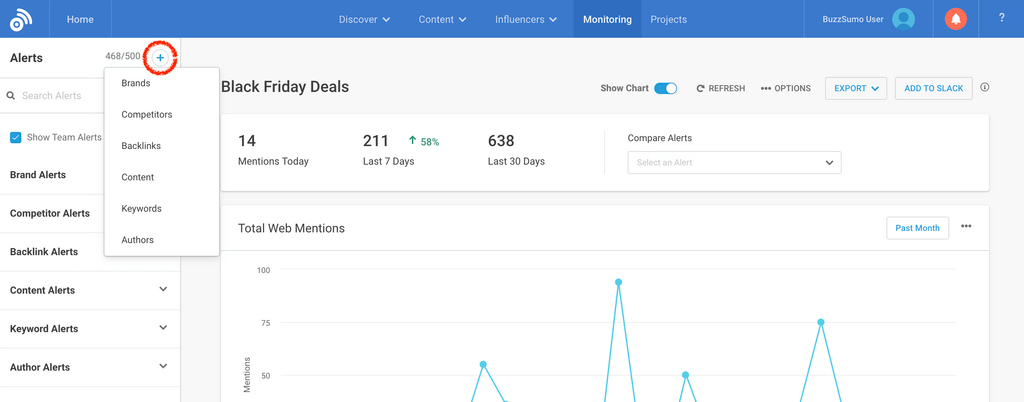

















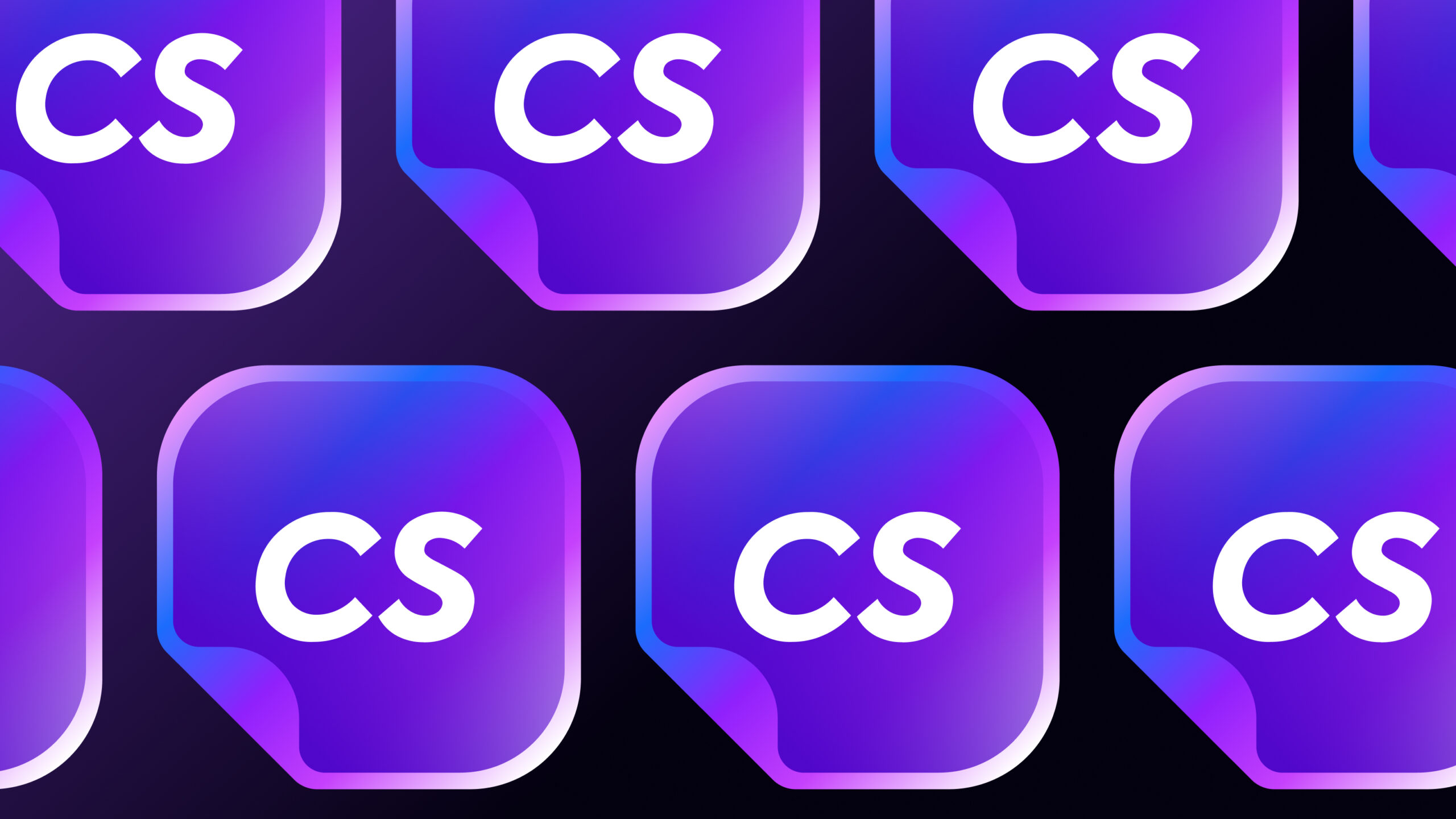









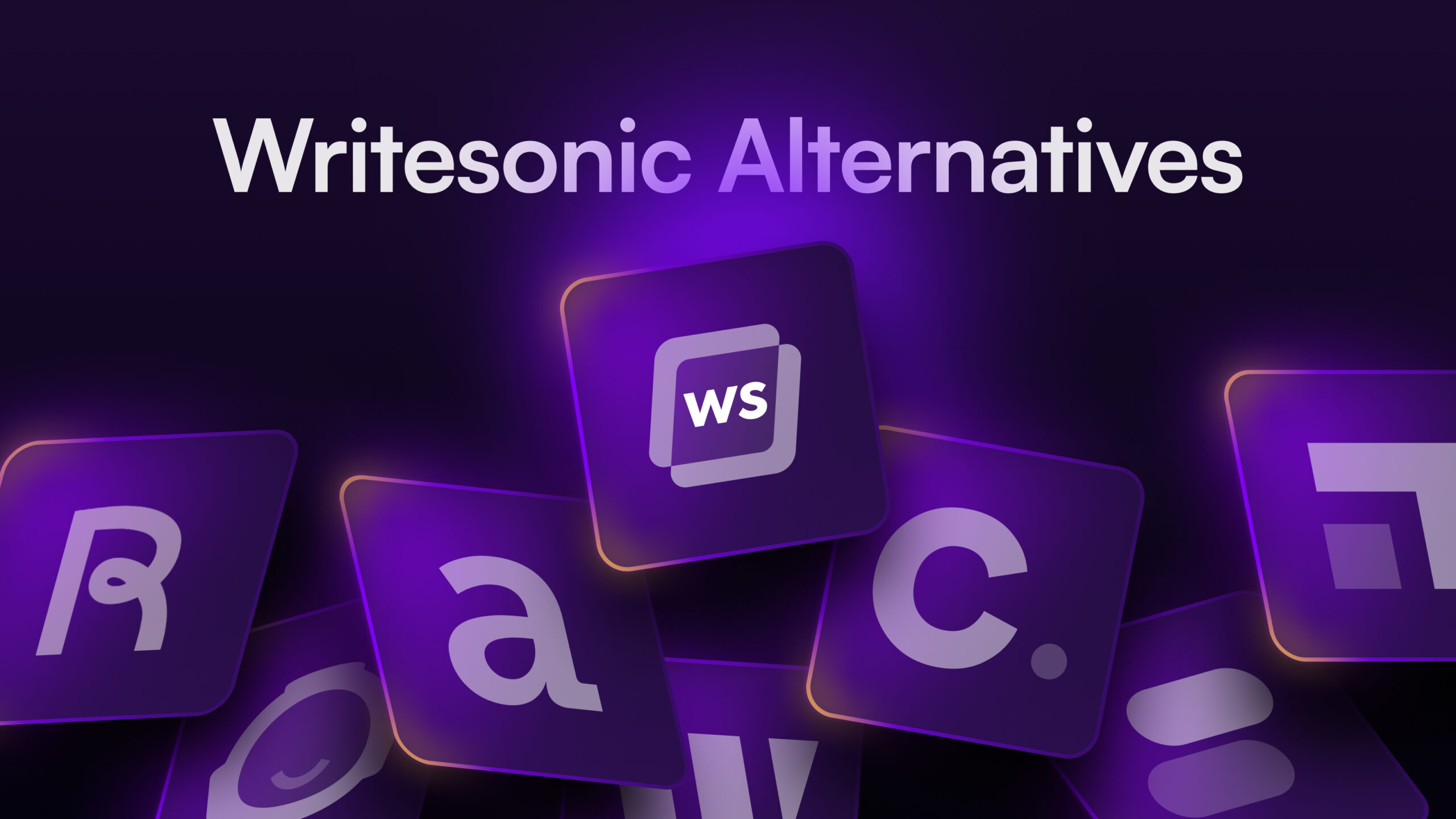
![140 Best AI Tools: Rated & Reviewed [2025]](/wp-content/uploads/Best-AI-Marketing-Tools-1-1.jpg)

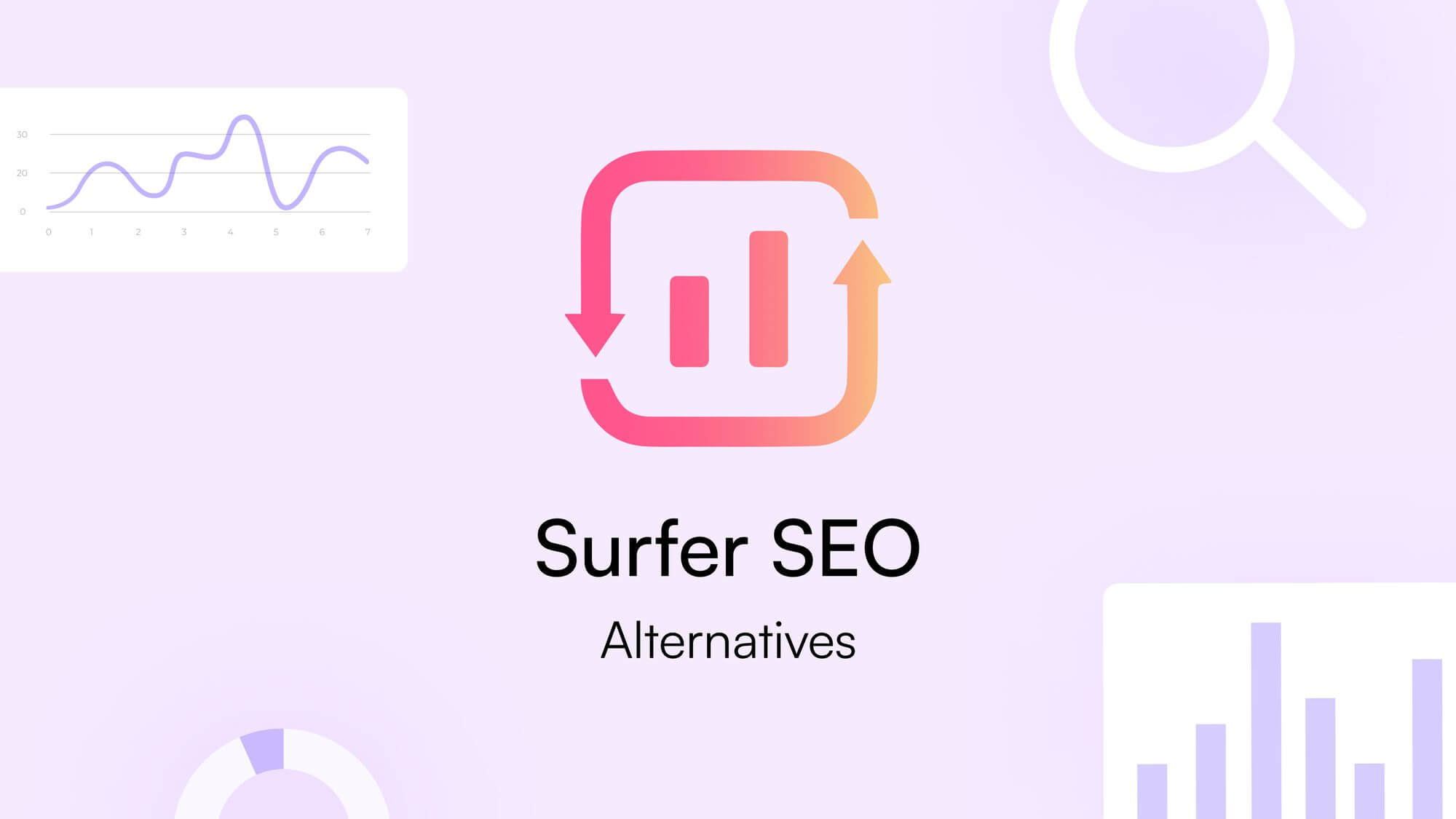





![Content Automation Strategy: Essential Steps and Tools [2025]](/wp-content/uploads/2024/08/Content-Automation-1.jpg)












